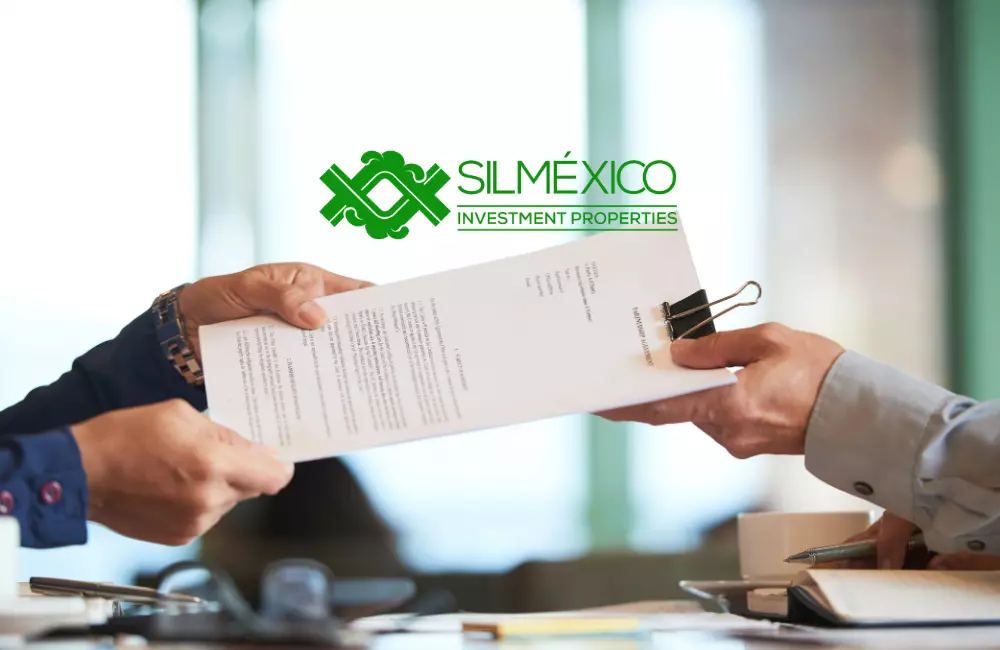
By Edith Reyes – Student of Public Accounting and Finance at Universidad La Salle, she is currently a member of the Real Legal Research Center and the Legal Department of SIL MÉXICO.
Mexico is a great tourist attraction whose gastronomy, culture, traditions, and beaches stand out. In recent years, the coastal area has become the preferred destination of residence for foreign tourists, captivated by the majestic views of the beaches.
However, they face a big problem since it is not possible for them to acquire direct ownership of this land because it is a “Restricted Zone”, this does not mean that it is totally impossible for them to enjoy this as a residence since Mexican laws allow foreigners to acquire properties in this zone through a legal figure called restricted zone trust, but what is the restricted zone, what is the restricted zone trust, what is the restricted zone trust?
The restricted zone is the strip of one hundred kilometers along the borders and fifty kilometers along the beaches, which for no reason may foreigners acquire direct dominion over these lands and waters, as established in Article 27 of the Constitution, section I.
Now, once the concept of restricted zone is understood, we can go deeper into the restricted zone trust, this is a legal figure, called a contract whose objective is that foreign persons may obtain the use or enjoyment of a real estate property located within what the law establishes as Restricted Zone.

This contract is made up of four essential figures which are:
- The settlor:
Understanding the settlor as the person who contributes to the real estate, i.e., the seller of the land (BBVA, 2020).
- The fiduciary:
The fiduciary can be any credit institution authorized by law, which is going to acquire the domain (BBVA, 2020).
- The trustee:
This is the person who has the right to the use and enjoyment of this real estate, also known as the foreign buyer.(BBVA, 2020).
- The trust property:
It is the real estate on which the trust is constituted.
In order for the trust to allow the use and enjoyment of the trust property, without constituting real rights over it, a permit from the Ministry of Foreign Affairs is required for the credit institutions to acquire as trustees, rights over real estate located within the restricted zone.
In order for these rights of use and exploitation to be granted, the trustees must be foreign individuals or legal entities, as provided in Article 11 of the Foreign Investment Law.

Article 12 of the Foreign Investment Law establishes that the term “use and utilization of real estate” refers to the rights of use or enjoyment of such real estate, including, if applicable, the obtaining of fruits, products, and, in general, any yield resulting from the operation and lucrative exploitation, through third parties or the fiduciary institution.
This figure regulated by Mexican regulations, which confers personal rights of use and enjoyment, represents a great opportunity for people of different nationalities whose objective is to reside or invest and enjoy the benefits that it generates, as long as it is carried out within the required legal framework. It is considered a great legal tool of acquisition since it allows the foreigner to enjoy this type of trust for an initial period of 50 years, extendable, which makes it without a doubt the ideal way to enjoy the wonderful views that the Mexican beaches offer in addition to entering an infinite horizon of gastronomic delicacies and incredible traditions that undoubtedly elevate lifestyle to the maximum.
References::
- Cámara de Diputados del H. Congreso de la Unión. (1917). Constitución Política de los Estados Unidos Mexicanos. https://www.diputados.gob.mx/LeyesBiblio/pdf/CPEUM.pdf
- BBVA. (2020). Fideicomiso de Zona Restringida. https://www.bbva.mx/content/dam/public-web/mexico/documents/empresas/fideicomisos-bbva/zona-restringida/conceptos-basicos-fideicomiso-zona-restringida.pdf
- Cámara de Diputados del H. Congreso de la Unión. (1993). Ley de Inversión Extranjera. https://www.diputados.gob.mx/LeyesBiblio/pdf/44_150618.pdf
